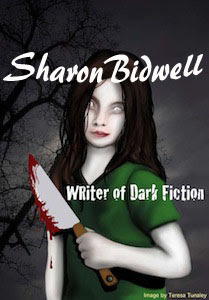Somebody’s Voice, Ramsay Campbell
Ouch might be a good one-word summation of this book without cursing; there’s a sting on almost every page, and in most sentences, especially the dialogue. It’s an uneasy read, but then it’s surely supposed to be. SHOULD be. I can understand if it’s polarising, especially with the trans part of the plot. Yet, I can also see why the Carla/Carl points aid Alex’s ambiguity with his memories, helping to splinter his personality, even his sanity with his increasing confusion. This isn’t the type of book I’m used to from this author. I’m used to the horror of unlit basements, of parallel worlds seeking to overlap our own, and dark entities that creep along in shadows. Rituals. Demons.
This — a book where the core is one of abuse — comes disturbingly grounded in reality. In genuine horror and actual monsters. Alex’s seemingly wild thoughts, as he loses his mind, his sense of himself, and of the truth, can make the reader’s head hurt. No doubt in a similar way to how Alex’s brain hurts as the book gathers momentum. There’s so much going on here. So many biases. So many agendas. Ugly falsehoods, assumptions, and repulsive truths, all combustible fodder for a world too eager to jump on, rely on, and believe social media. All of it was painful. A trap, which Alex falls into where his personal relationships are concerned. So I can’t say I enjoyed this book — it’s not that kind of novel. That doesn’t stop it from being an impressive piece of work that could (possibly) have been improved, but I was never, as some people have said they were, confused. And I would never want to improve Ramsay Campbell’s work, a writer whose name should be a household name.
The read was heavy going in places and I sometimes backtracked a little to work out who said what, so a few more dialogue tags may have helped there, but I can’t help wondering whether the author wanted the reader a little lost because this, too, helped me connect with Alex. No writer can please everyone, or delight fans with every book, and it’s unrealistic to expect them too, but I will say, if you’ve not read Campbell before, don’t start with this. Read half a dozen others first, because if something in here puts you off, you could well be missing out.
The Darkest Evening of the Year, Dean Koontz
A solid supernatural mystery thriller with an ending some may view cynically. I like to view it as a source of hope, in whatever form speaks to the reader. Some of the character backgrounds may be a little unnecessary but are used well and make it more difficult for the reader to guess the outcome. Take note: this is a tough read for anyone who has loved a dog, but only in the most heartfelt, bittersweet way.
Wildcat Tower, G.Christopher Davies
Essentially, the story of how four boys spend their summer in the north of the UK. I’m clearly not the intended audience be this a story of fishing, hunting, and questionable cruelty and compassion towards animals with a backdrop of a (possible) ghost in the place they’re staying — a grand ‘old peel’ built to protect Northumbrians. I can’t say I exactly enjoyed this, which was a little disappointing be it as I picked this book up during a visit to Hay on Wye, partly because I had started reading it while browsing, but mostly because I was surprised to stumble across so old a book in good condition complete with a handwritten inscription, (as far as I can make out) ‘Gilbert from Frantlee Aug 23rd 1890, the book being published in 1889. A book one-hundred and thirty-six years old, covered in spots of age, but complete with all its spectacular illustrations. The book was worth it for the illustrations alone, which, were one able to destroy a book that has survived for so long, would be perfect for framing. I am tempted to scan the odd one to frame, which would be as good, as they are a delight — intricate drawings of the wildlife and countryside of Northumberland — the like of which we seldom see in books now. I couldn’t help doing a little research. The G stands for George, who was a prolific writer and photographer who died in 1922. I wonder what he would have thought, knowing that original copies of his books are still in circulation.
Dead Funny (Horror Stories by Comedians), Edited by Robin Ince and Johnny Mains
When I picked up this book, I must have expected a surprising blend of humour and horror, but many of the stories turned out to be surprisingly dark. I disliked the first immensely — it’s an extremely difficult balance to introduce animals in any horror story, as one hurt creature can lose an audience. But others made me smile with the right twisted humour even when I found the writing a little disjointed. Overall, an eclectic mix with some I found enjoyable.
Agatha Raisin and the Fairies of Fryfam (audio), M.C.Beaton, Read by Penelope Keith
Murder once again follows Agatha around, this time during a break in Norfolk. Where Agatha hopes to find the right path in life, or the right man, she only seems to find strange people and stranger situations. Penelope Keith reading these is the best thing about them, though how Agatha keeps stumbling across dead bodies is always good for a chuckle.
